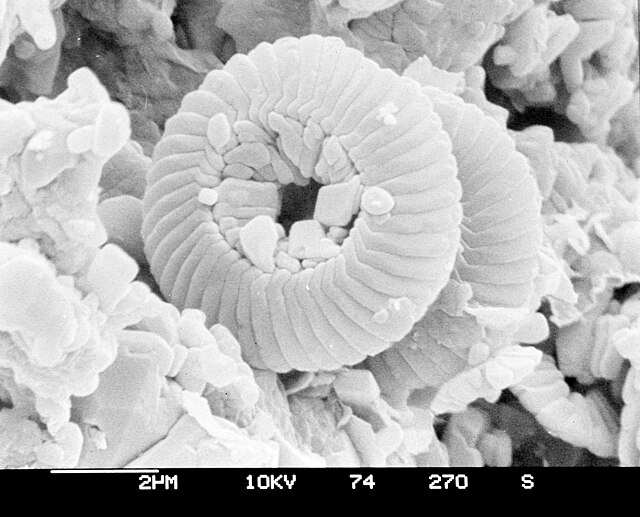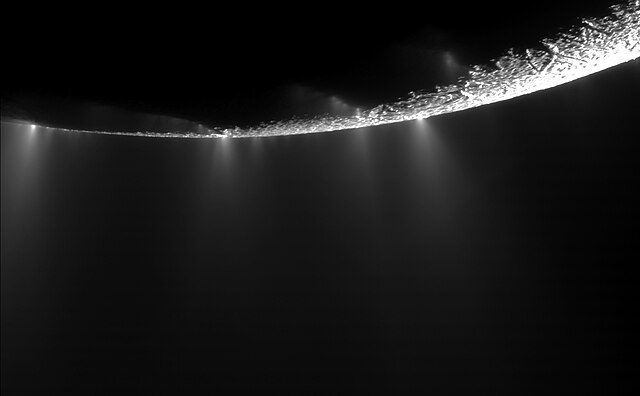A biosignature is any substance – such as an element, isotope, molecule, or phenomenon – that provides scientific evidence of past or present life on a planet. Measurable attributes of life include its complex physical or chemical structures, its use of free energy, and the production of biomass and wastes.
Electron micrograph of microfossils from a sediment core obtained by the Deep Sea Drilling Program
Some researchers suggested that these microscopic structures on the Martian ALH84001 meteorite could be fossilized bacteria.
An image of the plumes of water and ice coming from the surface of Enceladus. Future missions will investigate these geysers to determine the composition and look for signs of life.
Astrobiology is a scientific field within the life and environmental sciences that studies the origins, early evolution, distribution, and future of life in the universe by investigating its deterministic conditions and contingent events. As a discipline, astrobiology is founded on the premise that life may exist beyond Earth.
The interior of Europa
Asteroid(s) may have transported life to Earth.
Artist's impression of the extrasolar planet OGLE-2005-BLG-390Lb orbiting its star 20,000 light-years from Earth; this planet was discovered with gravitational microlensing.
The NASA Kepler mission, launched in March 2009, searches for extrasolar planets.







